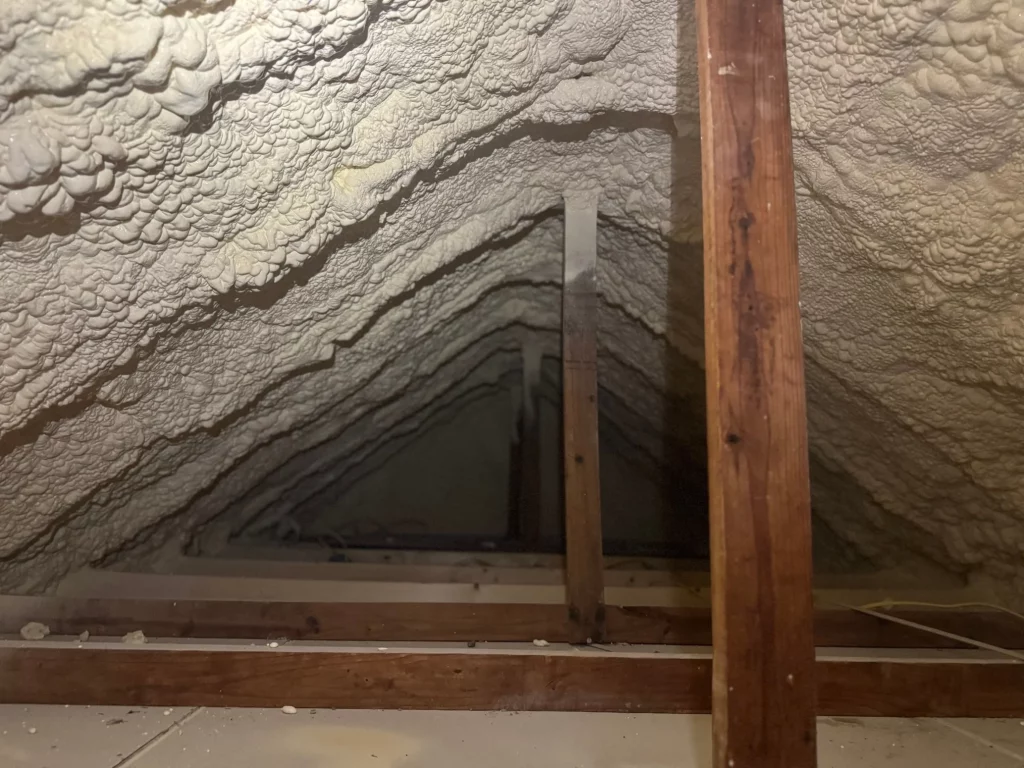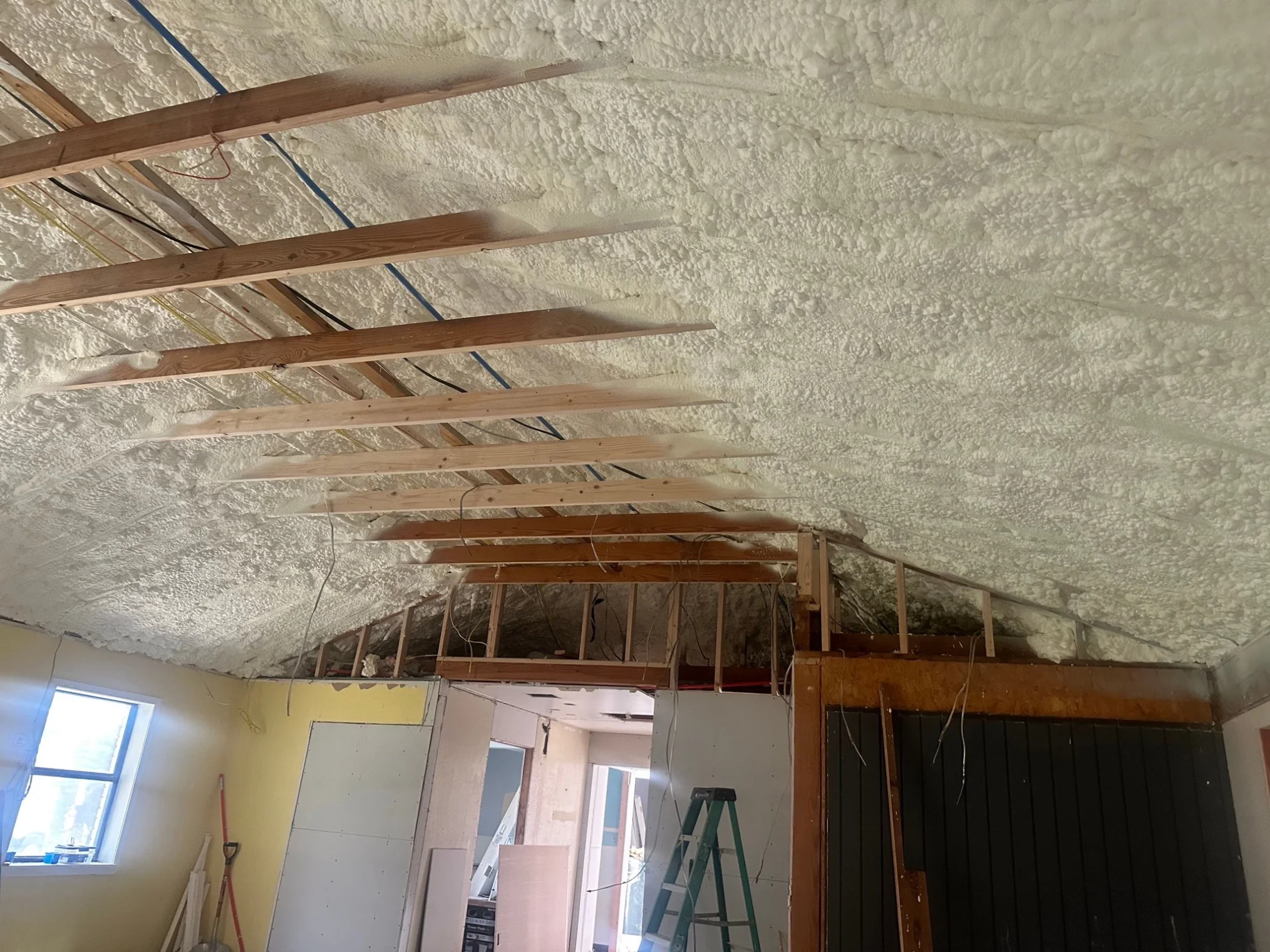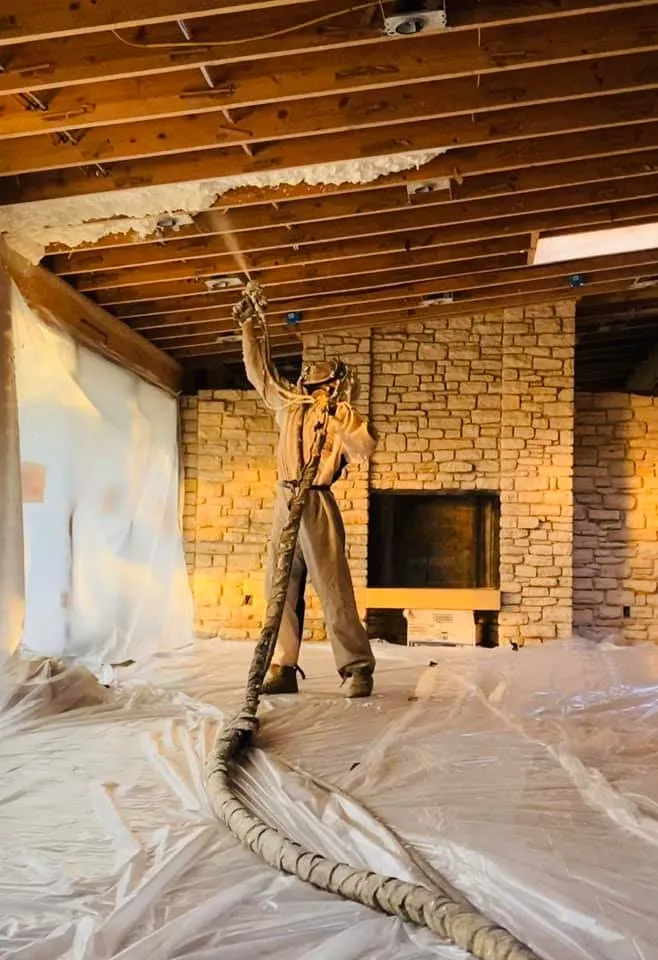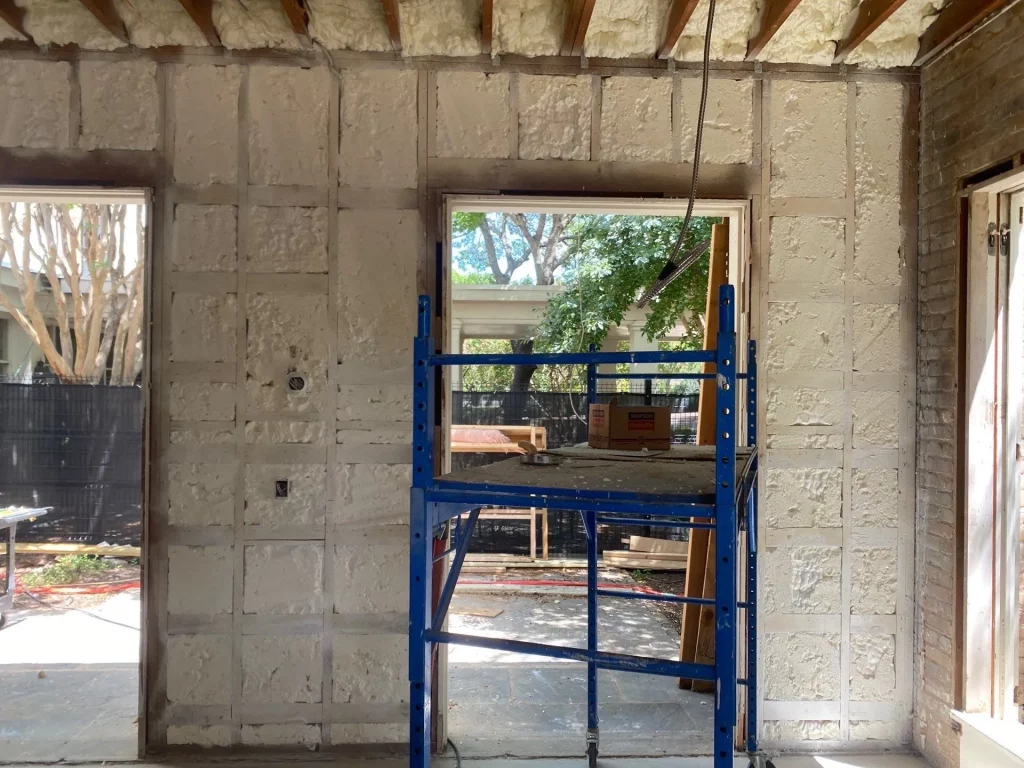Spray foam insulation is a highly effective material for soundproofing against airborne noises like voices, music, and traffic. Its primary function in sound control is to seal air gaps and create a solid barrier that absorbs and dampens sound waves, preventing them from traveling through walls, floors, and ceilings. While excellent for airborne sounds, it is less effective at stopping impact noises, such as footsteps or dropped objects, which require different soundproofing methods. The choice between open-cell and closed-cell spray foam also matters, with open-cell generally providing superior sound absorption.
This article offers a detailed look at how spray foam works to quiet your space, its practical applications in Universal City homes, and key factors to consider before you invest in it. Based on extensive field experience in insulation and building science, this guide provides practical insights for achieving a quieter home environment.
How Spray Foam Insulation Works for Sound Control
Sound travels in two primary ways through a building: through the air (airborne noise) and through the structure itself (impact or structure-borne noise). Spray foam insulation primarily targets airborne noise. When sprayed into a cavity, it expands to fill every crack and crevice, creating an airtight seal. This seal is the first line of defense, as many sounds travel through the same tiny gaps that allow air to leak.
Once the air seal is established, the foam’s cellular structure gets to work.
- Sound Absorption: The foam’s material composition absorbs sound energy, converting it into a tiny amount of heat and reducing its intensity.
- Sound Dampening: By adhering to studs, drywall, and sheathing, the foam reduces vibrations in these structural components, further deadening the transfer of sound.
Open-cell spray foam, with its softer and more porous texture, is particularly good at absorbing sound waves. In contrast, closed-cell foam is denser and more rigid, which makes it a better thermal insulator and vapor barrier but slightly less effective purely for sound absorption.
Open-Cell vs. Closed-Cell Foam for Soundproofing
Choosing the right type of spray foam is essential for achieving your soundproofing goals. While both types offer some level of sound reduction, their physical properties make them suited for different insulation applications. Open-cell foam is often the preferred choice for projects where sound control is the main objective.
A technical bulletin from the Spray Polyurethane Foam Alliance confirms that the less dense, flexible nature of open-cell foam makes it a better sound absorber than the more rigid closed-cell foam.
Here’s a direct comparison of their sound-related properties:
| Feature | Open-Cell Spray Foam | Closed-Cell Spray Foam |
|---|---|---|
| Primary Strength | Superior sound absorption | Superior thermal insulation & moisture barrier |
| Structure | Soft, flexible, and porous | Dense, rigid, and compact |
| Noise Reduction | Excellent for airborne noise (TV, talking) | Good for airborne noise, some vibration dampening |
| Typical NRC Rating | 0.70 | 0.50 |
| Best Use Cases | Interior walls, media rooms, home offices | Exterior walls, roofs, basements |
| Cost | Lower cost per board foot | Higher cost per board foot |
Note: NRC (Noise Reduction Coefficient) ratings range from 0 to 1, with higher numbers indicating better sound absorption.
Practical Applications in a Universal City Home
In a typical home, several areas can benefit greatly from the sound-dampening qualities of spray foam insulation in Universal City, TX. The goal is to strategically insulate spaces where noise is either generated or where quiet is most desired.
- Home Theaters and Media Rooms: Insulating the walls and ceiling of a media room with open-cell spray foam can contain loud movie sounds and prevent them from disturbing the rest of the house.
- Home Offices: Creating a quiet workspace is more important than ever. Spray foam in the walls of a home office can block out distractions from kitchens, living rooms, and kids’ play areas.
- Bedrooms and Nurseries: Insulating walls shared with noisy areas or exterior walls facing a busy street can significantly improve sleep quality.
- Laundry Rooms and Mechanical Closets: Applying foam to the walls surrounding noisy appliances like washers, dryers, and HVAC units can help isolate the sound.
- Floors and Ceilings: Using spray foam in the floor joist cavities between stories helps reduce the transfer of airborne noise, like conversations or television sounds, from one level to another.
Bonus Tip: For the best results in new construction or during a major renovation, insulate all interior walls around bedrooms, bathrooms, and offices. This proactive approach is far more effective and cost-efficient than trying to retrofit soundproofing later.
Things to Consider Before Making a Decision
Before committing to spray foam for soundproofing, it’s important to evaluate your specific situation. The right solution depends on the type of noise you’re dealing with, your home’s structure, and your budget.
- Identify the Noise Source: Is your primary issue with airborne noise (neighbors talking, loud music) or impact noise (footsteps from above)? Spray foam is for airborne noise. For impact noise, you may need additional solutions like resilient channels or mass-loaded vinyl.
- New Build vs. Retrofit: Installing spray foam is simplest and most affordable during new construction when wall cavities are open. Retrofitting it into existing walls requires drilling holes and injecting the foam, which is a more complex and expensive process.
- Overall Budget: Spray foam insulation is a premium product. According to the U.S. Department of Energy, spray foam can have a higher initial cost than traditional insulation like fiberglass or cellulose. You must weigh this cost against the long-term benefits of improved comfort and quiet.
- Professional Installation is Key: Spray foam is not a DIY product. It requires precise mixing of chemicals and specialized equipment to ensure it cures correctly and performs safely. Improper installation can lead to off-gassing and poor performance.

FAQS
What is an STC rating and how does it apply to spray foam?
STC, or Sound Transmission Class, measures how well a building partition attenuates airborne sound. A higher STC rating means better sound insulation. A standard interior wall has an STC of about 33. According to home improvement resource Bob Vila, adding open-cell spray foam can increase that rating to 37-39 or higher, which represents a clearly noticeable reduction in sound.
Will spray foam reduce traffic noise from a busy Universal City road?
Yes, absolutely. Traffic is a classic example of airborne noise. Applying spray foam, especially closed-cell foam in exterior walls, creates an effective air seal and sound barrier that can significantly cut down on the rumble of cars and trucks.
Can I use spray foam to soundproof my garage?
Spray foam is an excellent choice for a garage, especially if it’s attached to the house or has a workshop. It not only reduces the noise of power tools and car engines but also provides a superior thermal barrier, making the space more comfortable year-round.
Are there any health considerations with spray foam for soundproofing?
When installed correctly by a certified professional, cured spray foam is inert and safe. The installation process involves chemical reactions that require the area to be vacated by occupants for a recommended period, usually 24 hours, to ensure complete curing and ventilation.
Final Thoughts on a Quieter Home
Spray foam insulation in Universal City, TX offers a powerful solution for reducing unwanted airborne noise in your home. By creating an airtight seal and absorbing sound waves, it can make a substantial difference in home theaters, offices, bedrooms, and any space where peace and quiet are a priority. The key is to identify the type of noise you need to control and choose the right type of foam for the job. Before moving forward, carefully evaluate your home’s needs, your budget, and the long-term value of a quieter living environment.
Get a Professional Assessment
To determine the best soundproofing strategy for your property, a professional evaluation is the next step. For residents in the Universal City area, the team at Stellrr Insulation & Spray Foam can provide a detailed assessment and explain your options. Contact an expert to discuss your project by calling (512) 710-2839 or sending an email to info@stellrr.com.
Sources
- Spray Polyurethane Foam Alliance – An industry resource providing technical details on how different types of spray foam perform for sound control.
- U.S. Department of Energy – Provides consumer information on various insulation types, including general cost and performance characteristics.
- Bob Vila – An article explaining STC ratings and how different materials, including insulation, contribute to soundproofing walls.





